Neglecting your dog’s oral hygiene leads to painful conditions like gum disease, tooth loss, and bad breath. More seriously, untreated dental problems spread bacteria through the bloodstream, harming the heart, kidneys, and liver, which shortens your dog’s lifespan.
Why Dog Oral Hygiene Matters
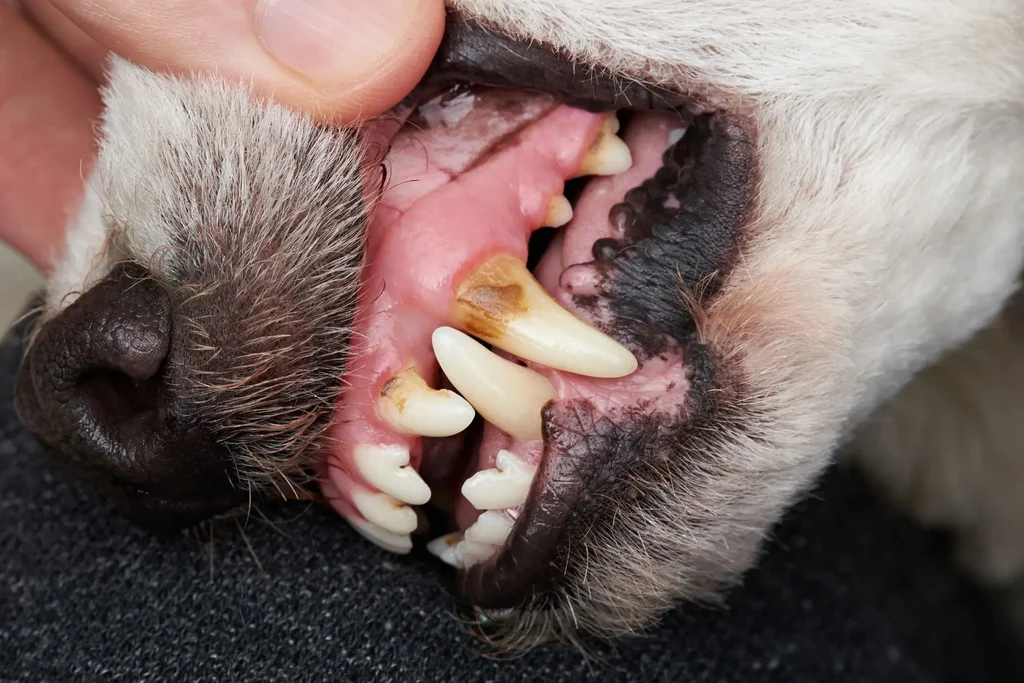
The dangers of neglecting your dog’s oral hygiene start with something as simple as plaque. When plaque hardens into tartar, it irritates gum tissue and leads to infection. This is not only about bad breath in dogs. Dental disease connects directly to systemic issues in the body.
- Plaque and tartar irritate gums and erode teeth
- Bacteria travel from the mouth into the bloodstream
- Chronic oral disease weakens the immune system
- Painful gums reduce eating and affect nutrition
Dog dental health is as important as exercise or diet. Ignoring it creates long-term suffering for your pet. At Careers Collectiv, we emphasise preventive care because addressing oral health early avoids these problems. Pet owners who want to learn more about responsible care can explore our Animal Welfare Course, which covers pet health, safety, and long-term wellbeing.
Signs Your Dog Has Poor Oral Hygiene
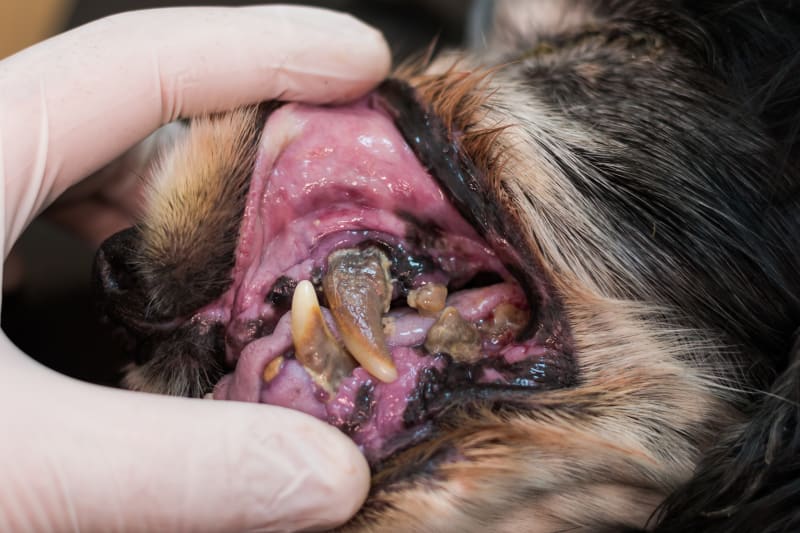
Knowing the signs helps you act before serious damage occurs. Look for:
- Bad breath (halitosis)
- Yellow or brown tartar on teeth
- Excessive drooling or pawing at the mouth
- Bleeding or swollen gums
- Reluctance to eat or loss of appetite
- Loose or missing teeth
- Behavioral changes like irritability
If your dog shows any of these symptoms, it signals the early stages of dental disease. Identifying problems early saves money and prevents long-term health damage.
Health Risks of Neglecting Dog Dental Care
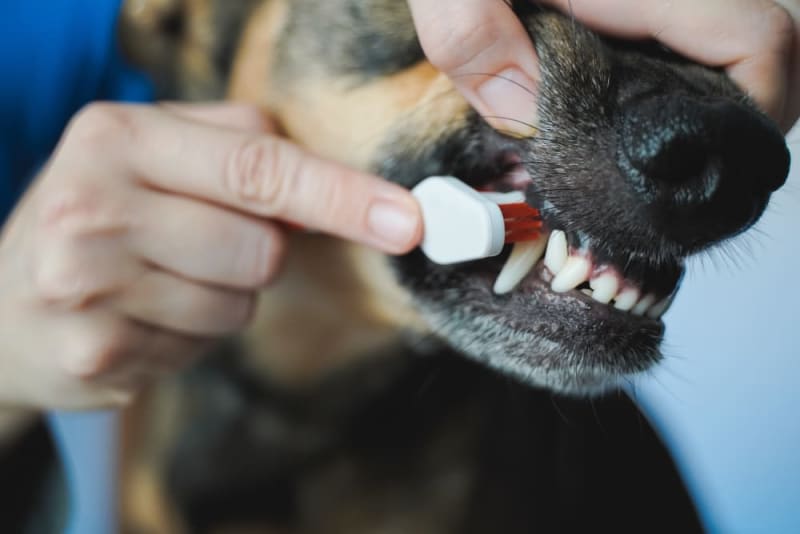
The dangers of ignoring dog dental care extend far beyond the mouth. Infections left untreated progress to life-threatening conditions.
- Periodontal disease erodes bone supporting the teeth
- Bacteria enter the bloodstream, causing bacteremia
- Infected blood reaches the kidneys, liver, and heart
- Dogs develop chronic pain, making daily activities stressful
Veterinary studies show a direct link between periodontal disease and systemic illnesses like endocarditis, kidney failure, and worsening diabetes. By treating oral health as optional, owners put their dogs at risk of organ failure.
How Dental Neglect Affects Quality of Life
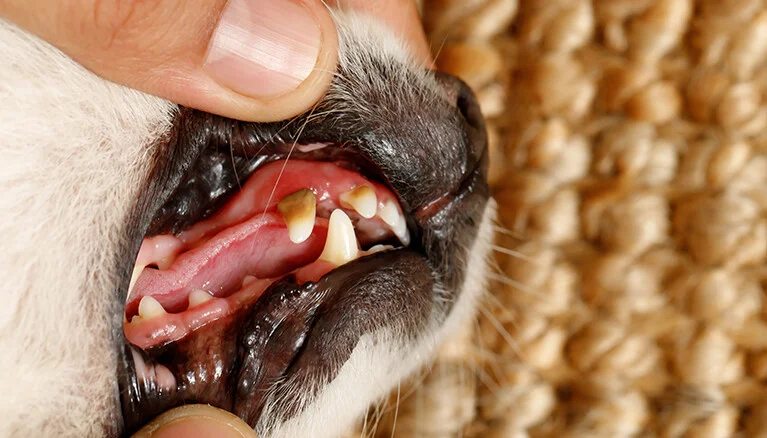
Dog pain from bad teeth is not only physical. It changes behavior, appetite, and overall lifespan.
- Dogs in pain stop playing and exercising
- Difficulty chewing reduces food intake and causes weight loss
- Chronic inflammation leads to fatigue and low energy
- Bad breath creates stress in the home environment
- Untreated dental problems shorten a dog’s life by years
When a dog’s mouth hurts, quality of life collapses. Preventive oral care directly improves lifespan, happiness, and bonding with the owner.
Preventive Oral Care for Dogs
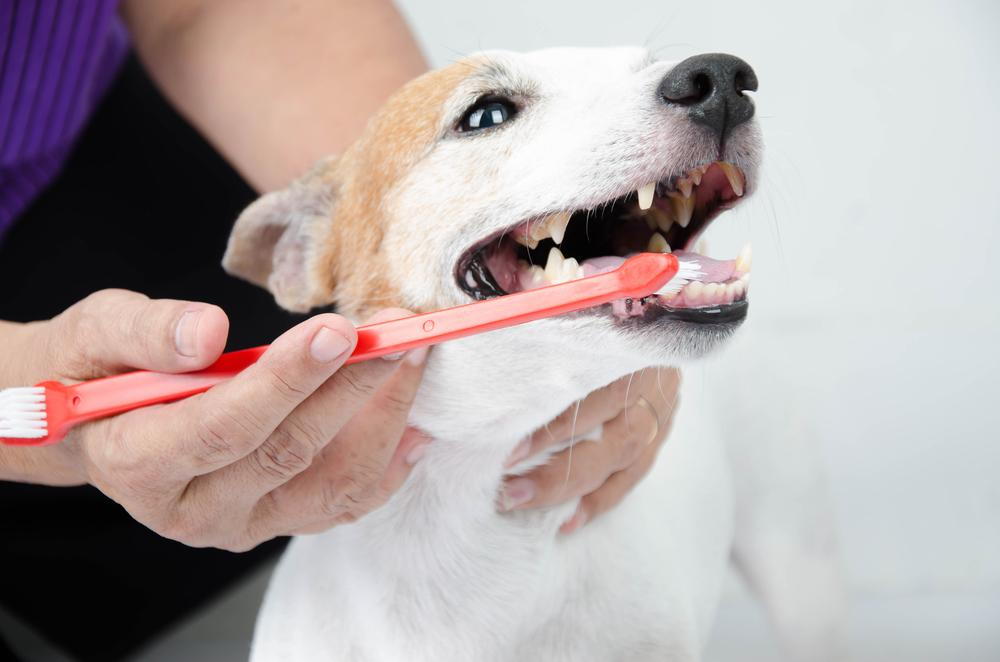
Preventive oral care stops problems before they escalate. Owners should use multiple strategies.
Brushing
- Brush your dog’s teeth daily or at least 3 times a week
- Use a toothbrush designed for dogs
- Use only veterinary-approved toothpaste
Dental Chews and Toys
- Provide chews that reduce plaque buildup
- Avoid hard bones that fracture teeth
- Use textured toys to stimulate gums
Professional Cleanings
- Schedule annual dental checkups with your vet
- Professional cleanings remove tartar unreachable by brushing
- Vets detect early gum disease before symptoms show
Safe Diets for Oral Health
- Feed kibble designed to reduce plaque
- Avoid sugary treats and table scraps
- Provide raw vegetables as natural cleaners
Careers Collectiv recommends combining at-home habits with professional support. This dual approach prevents disease progression.
Common Mistakes Owners Make in Dog Dental Care
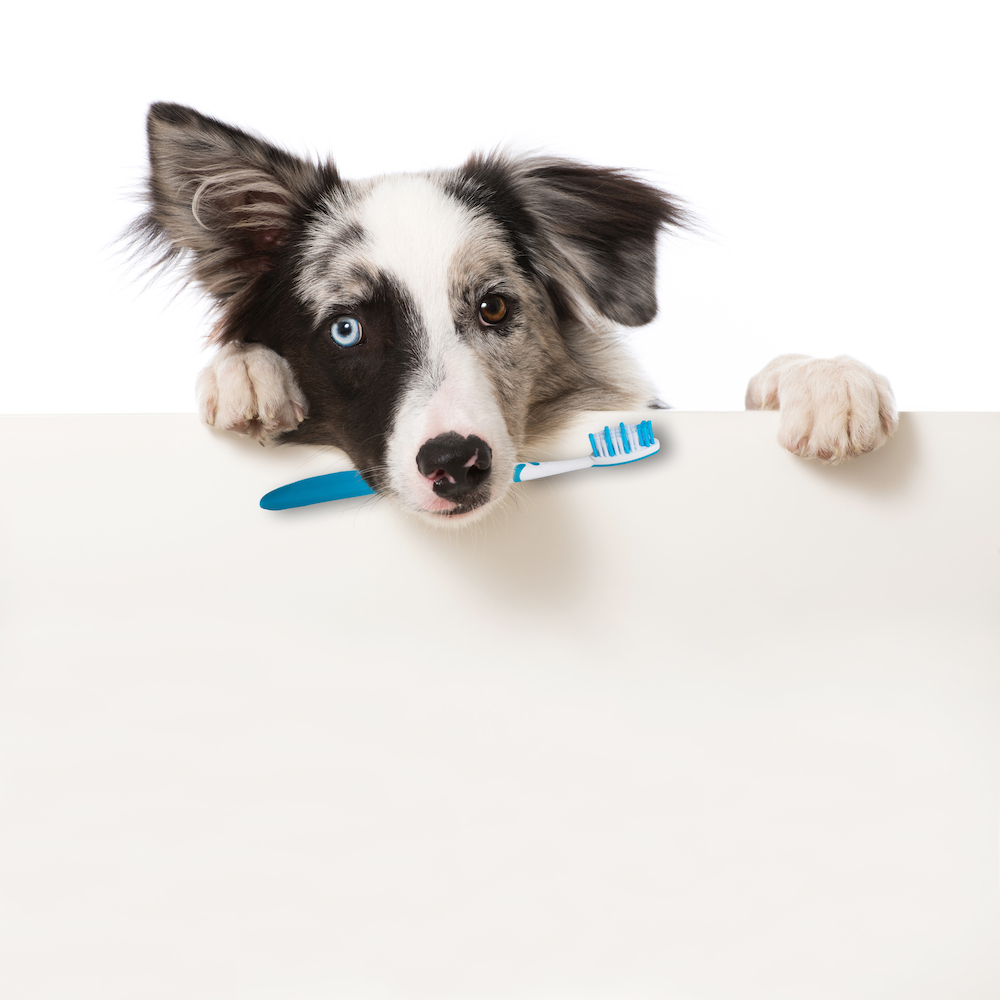
Pet dental care mistakes cause more harm than good. Owners often:
- Use human toothpaste, which contains toxic fluoride
- Ignore mild symptoms like slight bad breath
- Assume dental chews replace brushing
- Skip veterinary visits due to cost or time
- Provide unsafe chew toys that crack enamel
Avoiding these mistakes protects your dog’s oral health and prevents unnecessary suffering.
Cost of Treating Neglected Dog Dental Issues
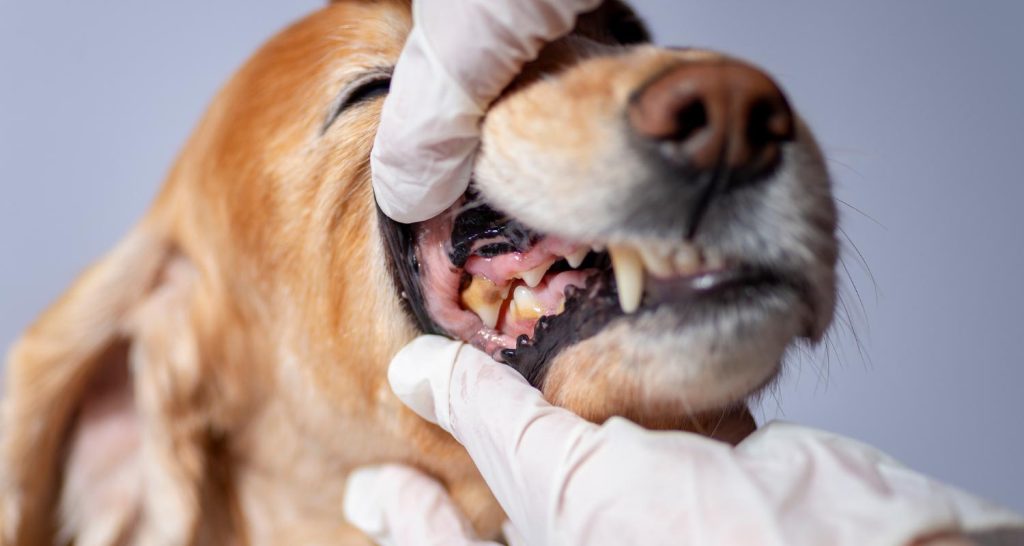
The cost of ignoring your dog’s teeth is far higher than prevention. Veterinary data in Australia highlights the financial impact:
- Routine dental cleaning: $300–$500 AUD
- Tooth extraction: $800–$1,500 AUD per procedure
- Advanced periodontal surgery: $2,000 AUD and higher
- Risk of anesthesia adds to treatment cost
Pet insurance sometimes covers dental work, but many policies exclude it. Owners who skip preventive care face bills that exceed routine maintenance many times over. Careers Collectiv stresses that prevention is always cheaper than emergency surgery.
FAQs on Dog Oral Hygiene
How often should I brush my dog’s teeth?
Brush daily if possible. At minimum, brush three times per week.
What happens if I never clean my dog’s teeth?
Your dog develops tartar, gum disease, tooth loss, and systemic infections that shorten life expectancy.
Can poor dental health shorten a dog’s life?
Yes. Chronic infections damage the heart, liver, and kidneys, reducing lifespan by years.
Do dental chews really work?
They help reduce plaque, but they never replace regular brushing and veterinary checkups.
Final Thoughts on Protecting Your Dog’s Health Through Oral Care
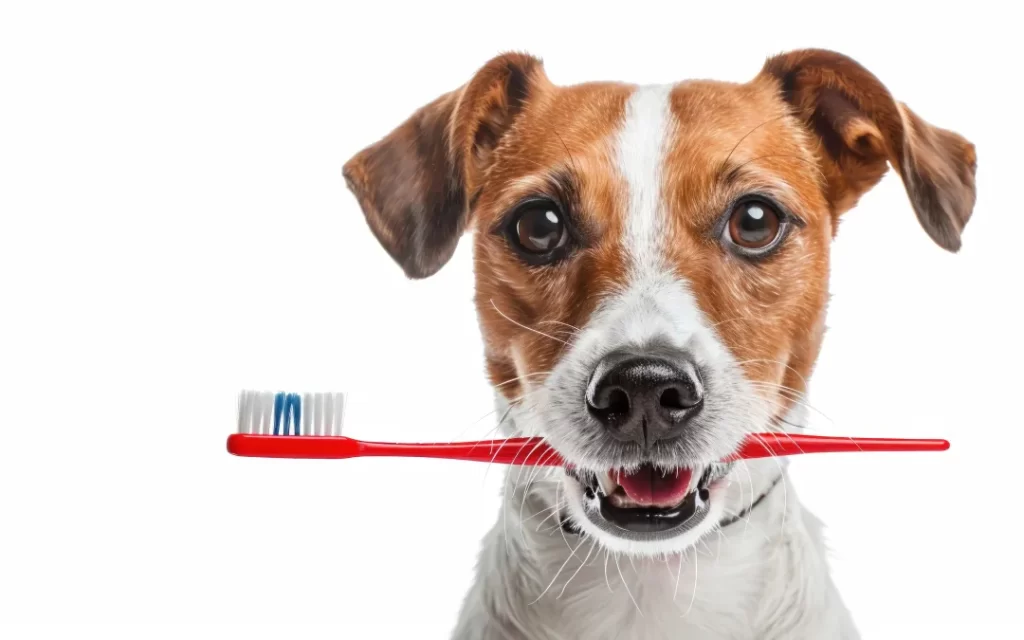
The dangers of neglecting your dog’s oral hygiene are serious. From gum disease to life-threatening organ failure, dental neglect causes pain, stress, and financial strain. By brushing regularly, using safe chews, and scheduling annual checkups, you protect your dog’s health and happiness.
Careers Collectiv encourages all pet owners to treat dental care as part of essential daily health. Taking preventive action ensures your dog lives longer, eats better, and enjoys a higher quality of life.